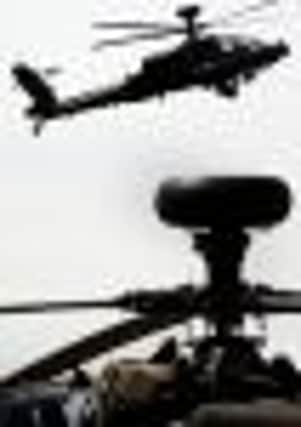Ted Bromund: US leadership melts away into sands of Libya over Obama’s foolish humanitarian foray


Above all, Libya is an object lesson in the folly of starting a war for humanitarian aims. One might as well spend money in order to save it, or cut your throat to improve your singing voice. Alleviating suffering is undoubtedly a noble aim, and there is a lot that Western governments and private organisations can do to advance it. But the problem with defending the cause of humanity is that Western publics will turn against wars of any length that do not obviously serve the national interest.
Interventionists may regard this as selfish, but it is nonetheless a fact. As we should have learned in Somalia during the Black Hawk Down fiasco, humanitarianism is a good starter and a bad finisher. But instead of thinking seriously about this problem, interventionists obfuscate it by relying on their own good intentions and hoping for the best. President Obama’s promise that the Libyan intervention would be over in days is growing more hollow by the hour.
Advertisement
Hide AdAdvertisement
Hide AdIt didn’t have to be this way. Across the Middle East, the perception is growing that the US has forgotten the ironclad rule of the region: reward your friends and punish your enemies. Instead, the US is trying to pacify quarrels by slapping its allies down and allowing the worst of the dictators to slide by.
From Obama’s perpetual jabs at Israel to his reluctance to speak out against the Assad regime in Syria, he is feeding the belief that the US wants to bug out.
A decisive Nato intervention against the Gaddafi regime would have demonstrated that the West is not quitting, that it retains the will and the ability to act. A White House that understood how the Middle Eastern game is played would have used Nato’s success to frighten Syria and to deter Iran. Humanitarians do not like to think about power, because they blame it for the world’s atrocities, but power and reputation shape the Middle East.
As a result, the lessons our enemies, like Iran, will take from the war are many, and none are helpful. They have learned that Obama and Nato are reluctant to act without a covering endorsement from the UN Security Council, an endorsement that Nato then twisted into a mandate for regime change.
Advertisement
Hide AdAdvertisement
Hide AdIran can count on Russia and China, who profoundly dislike international assistance to internal opponents of tyranny, to veto the next Nato-sponsored resolution.
They have also learned what is already common knowledge: that most of Nato is a paper tiger. The European effort in Libya would collapse within days without American support behind the scenes, and even with that support, the European militaries are so thin that even the strain of battling Libya, a third-rate military across a narrow ocean, has worn them down in a matter of a few months. The West is now hoping not that it can win the war, but that Gaddafi will prove to have even less endurance than it does.
The lesson for Iran is simple. Do not plan to win: plan to avoid losing. Build up your ability to fight a long war, if a war that lasts for months now counts as long. Put as many civilians in harm’s way as possible, to ensure that the tender consciences of the West will rebel when, inevitably, their planes hit the wrong target.
Stockpile as many armed civilian vehicles and as much gasoline as you can, so you can maintain control on the ground even if you lose control in the air. Above all, oppress your people in many little ways so you do not have to try to oppress them in one large one that will draw unwanted, sustained attention.
Advertisement
Hide AdAdvertisement
Hide AdFor the final lesson that the West’s enemies will learn from Libya is that the West’s attention is fleeting and divided. Fleeting attention is inherent in humanitarian wars. But the deeper failure of the Libyan war is that even if Nato wins, the fecklessness with which Obama entered into it has divided the American political coalition for leadership in the world, and in particular for the war in Afghanistan.
Much of the Left was already anti-war: their loyalty to Obama was badly tested by Afghanistan, and has now disappeared in the skies over Tripoli. Much of the Right supported Obama over Afghanistan, but cannot stomach Libya, which conservatives correctly view as a war that the President has sidled into without serious thought or Congressional support. The Right’s disgust over Libya will give Obama cover to move towards the anti-war Left, a base that he needs to consolidate in advance of the next election.
The end result, even if Gaddafi loses, will be a presidential campaign that will skew towards suspicion of American leadership. If Gaddafi wins, the skew will be even worse. Humanitarians, with their tendency to believe that US power needs to be tamed and channelled through the UN to be acceptable, may cheer an American retreat, which to them will look like a mature acceptance of multilateralism.
But the lesson of Libya is that multilateral institutions, even Nato, don’t work without US leadership. And now, that leadership is melting away into the sands of Libya.
Ted R Bromund is a senior research fellow at The Margaret Thatcher Center for Freedom, based at The Heritage Foundation, Washington.